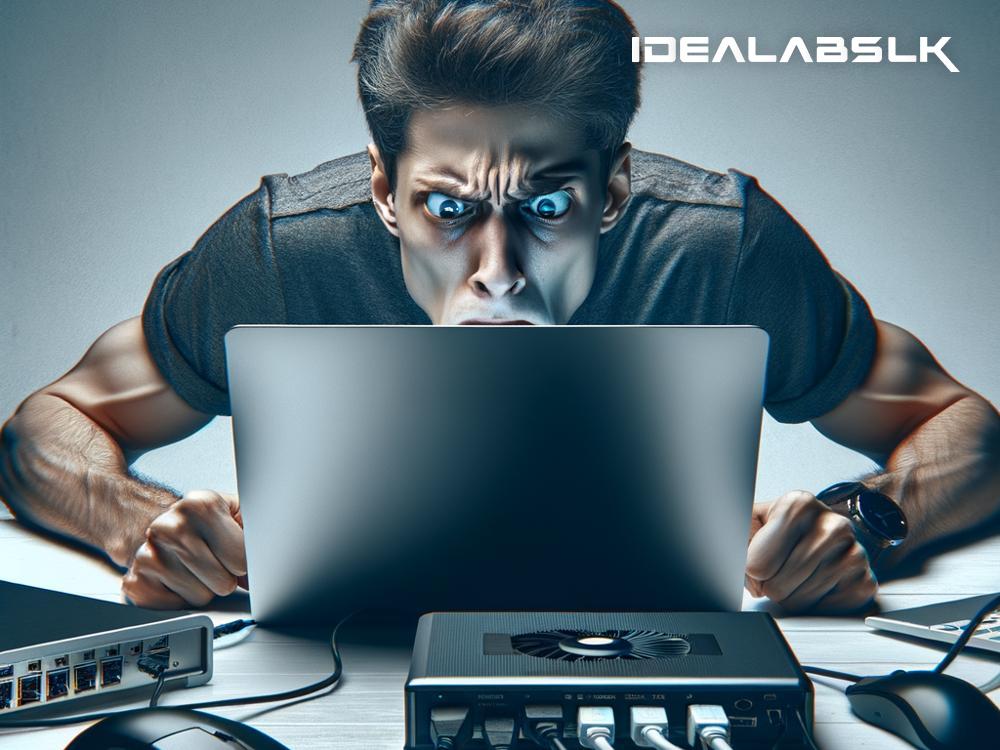Why Your Laptop Freezes When Using External Devices
Have you ever found yourself in the middle of an important project or enjoying your favorite movie, only to have your laptop freeze abruptly as soon as you plug in an external device? It's frustrating, isn't it? Well, you're not alone. Many users experience this issue, leaving them puzzled and at times, a little annoyed. But why does this happen? Understanding the reasons behind these freezes can help mitigate the issue and ensure a smoother experience with your laptop. Let’s dive into these reasons in simple English.
Insufficient Power Supply
One of the main culprits behind laptop freezes is an insufficient power supply. Laptops are designed to manage power efficiently, especially since they run on batteries. When you connect external devices, such as hard drives or gaming peripherals, they draw power from the laptop itself. Some devices require a lot more juice than what your laptop can deliver, putting a strain on the system. The laptop tries to compensate, but sometimes, it just can't keep up, leading to freezes. To prevent this, consider using powered USB hubs that supply their power to your devices, alleviating the stress on your laptop's battery and power system.
Outdated or Faulty Drivers
Drivers are essential pieces of software that help your laptop communicate effectively with external devices. When they are out-of-date or get corrupted, communication breaks down, leading to performance issues, including freezes. This is especially common with devices that rely heavily on drivers to function, like external graphics cards. Keeping your drivers updated is a straightforward solution to this problem. Most devices come with software that can automate this process, or you can visit the manufacturer's website to download the latest drivers.
Overloading the System
Laptops, especially older models, have limitations on how much load they can handle. Connecting multiple devices simultaneously can overwhelm your laptop’s resources, such as CPU and RAM. This is like trying to juggle too many tasks at once; eventually, you're bound to drop something. When your laptop is running slow or freezing, check if disconnecting some devices improves performance. This can help you identify if the issue is related to system overload.
Conflicts Between Devices
Sometimes, the problem isn’t how many devices are connected, but which devices are connected. Certain devices might not play nicely together due to conflicting software or hardware requirements. For instance, two devices might be trying to use the same resource or port, leading to confusion and eventually, a system freeze. Identifying conflicting devices can be tricky but paying attention to when and with which device combinations the freezes occur can offer clues.
USB Port Issues
The physical USB port you're plugging devices into could also be the problem. Damaged ports can lead to poor connections, causing the system to become unstable and freeze. Similarly, if there's a hardware issue with your laptop's motherboard where the USB ports are connected, this could lead to freezes whenever a device is plugged in. Trying different ports or using an external USB hub can help you identify if this is the issue.
How to Prevent Laptop Freezes
To keep your laptop running smoothly even when using external devices, consider the following tips:
- Use Powered USB Hubs: These can supply power to your devices without overloading your laptop’s power system.
- Update Drivers Regularly: Keep your device drivers up to date to ensure smooth communication between your laptop and external devices.
- Avoid Overloading: Be mindful of your laptop's limits and try not to connect more devices than it can handle.
- Monitor Device Compatibility: Pay attention to which devices are connected when freezes happen to identify potential conflicts.
- Check Your Hardware: Regularly inspect your USB ports and consider getting professional help if you suspect a motherboard issue.
Conclusion
Laptop freezes can be annoying, but understanding why they happen when using external devices can help you take proactive steps to prevent them. By managing power supply, keeping drivers updated, being mindful of system load, resolving device conflicts, and maintaining your hardware, you can ensure a smoother, more enjoyable laptop experience. Remember, technology has its quirks, but with a bit of knowledge and patience, you can navigate through most issues that come your way.

